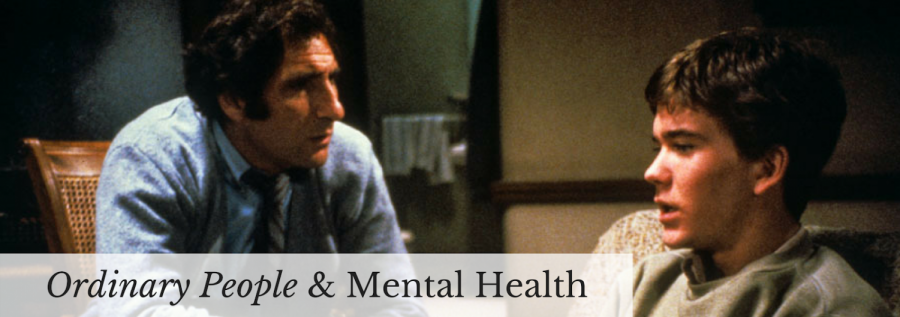Ordinary People & Mental Health: A Review of the Film’s Relevant Themes
January 17, 2019
An iconic movie in Lake Forest’s history, as well as an Oscar Winner for Best Picture, Ordinary People, created in 1980, is set mostly at Lake Forest High School and other locations in the Lake Forest and Lake Bluff area. It features a student, Conrad, whose struggle with mental illness and loss impact his daily life and relationships with his family members. Students attending the high school today might not know about this movie or have been able to watch the film, but it’s close-to-home setting and implications regarding mental health make it important for all LFHS students to watch.
The opening scene depicts common settings– the gazebo and Sunrise Park in Lake Bluff, East Deerpath Road, and Lake Michigan. Accompanied by a somber instrumental, the settings look gloomy and uncertain– set apart from the glamour that fills the property lots within them. Further in tho the film, scenes of the main character, junior Conrad Jarrett, show him suffering from insomnia, loss of appetite, and overall anxiety; as it is presented, he has just returned from a four month stay in the hospital for attempting to commit suicide. Although unclear in the first half of the film, short depictions of two boys struggling with a boat in distress and images of a lost older brother “Bucky” seem to present the causes of Conrad’s pain. Without giving anything away, many important themes can be seen within the film that may be hidden, but are present, in the real Lake Forest community and beyond.
Ordinary People was revolutionary at the time because of the way it depicted Conrad’s psychiatrist, Dr. Berger. Previously, television and movies presents psychiatrists and others in the psychological field as “shrinks”– a negative connotation. Because of this outcast, bizarre, and adverse image, society at the time did not accept the idea as positively as we do today. Dr. Berger is shown as an adult who helps Conrad immensely, as he teaches him to accept and feel his emotions, stand up to others, and be more willing to share his thoughts. Berger’s representation offers to all the true reality that psychiatrists can have a very positive impact on those suffering from mental illness and be a friend to listen when there seems to be no others.
Conrad finds great difficulty in returning to “normal” life when he returns to high school. While battling his inner struggles, he attempts to participate in the swim team, which he has lost interest in, and communicate with friends he seems to no longer relate to. While enveloped in his mental illness, it is difficult for him to relate and find interest in everyday activities. However, the movie illustrates how his friends and swim coach attempt to help him; however, Conrad learns he must help himself through the situation and find peace in his own way. With advice from Dr. Berger, Conrad is able to do this– a message that with a bit of help, change can truly be a positive thing when navigating mental illness.
Another consistent theme throughout the movie is the family’s effort to conceal Conrad’s hospital stay, as well as his struggles thereafter. His mother attempts to cover up that Conrad is seeing a psychiatrist to nearly everyone, including Conrad’s grandmother. The pressure she feels to keep normalcy alive is evident, as her small talk, unwillingness to speak of difficult things, and attempt to keep up her social life instead of being involved in her son’s recovery reveal her fear of being different. Evident in the film’s title, her attempt to appear ordinary was extremely important to her well-being. Due to all the societal pressures upon families as such and within this community, these cover-up methods can not only hinder those with mental illness but also all family members who can see through the false image.
Whether watching Ordinary People seems appealing to see a scene of the Knollwood McDonalds in the 1980’s or view the family’s struggle as they attempt to navigate a very unordinary situation, the film hits incredibly close to home. The Jarretts could be neighbors, friends, or even part of your own family. Recognizing that all could be fighting these secret battles is important for how we treat and support one another. Although there have been great advances towards an open discussion about mental health since the film was produced, there are still many steps to go and Ordinary People highlights the biggest issues this community still battles.







